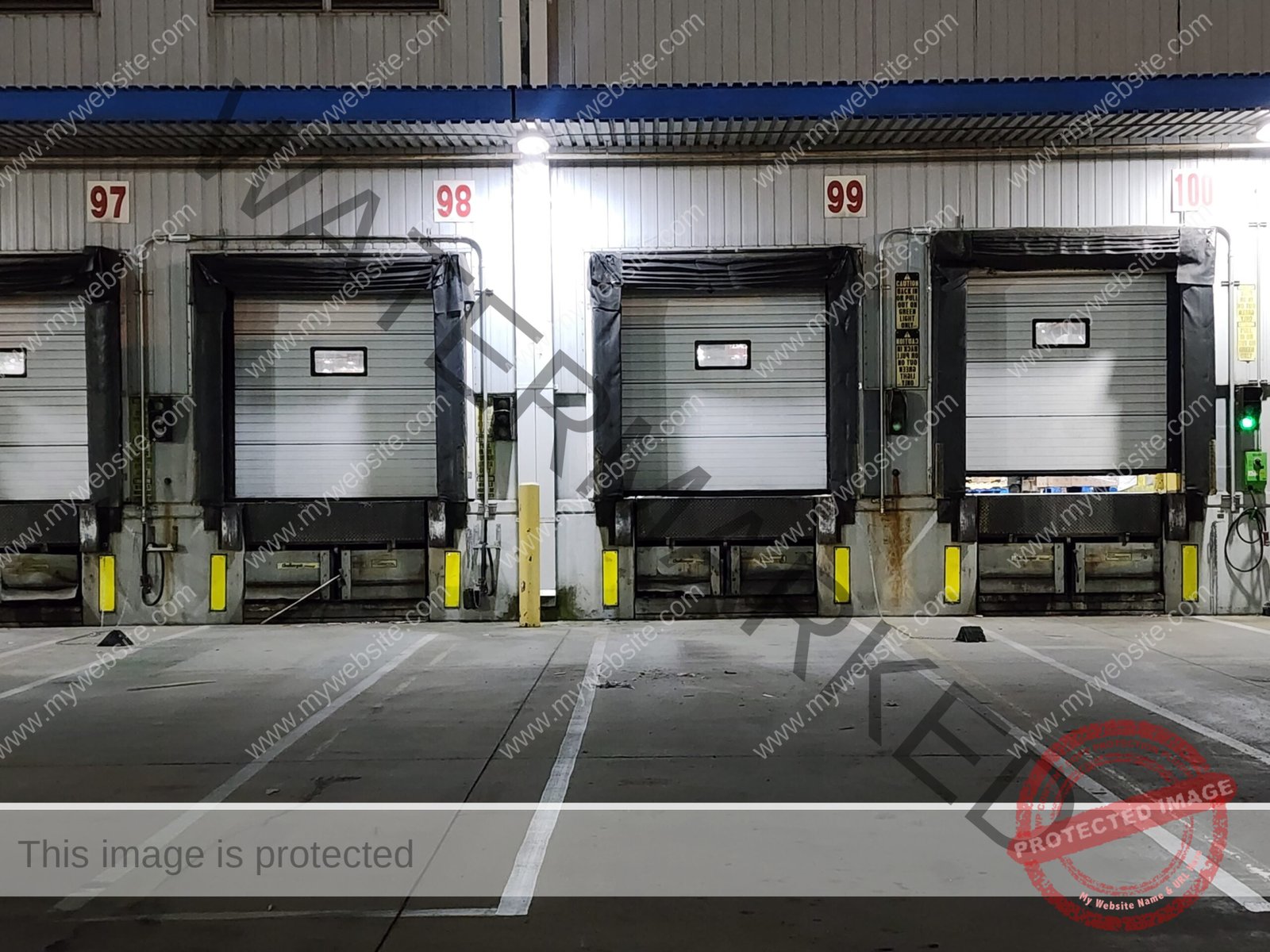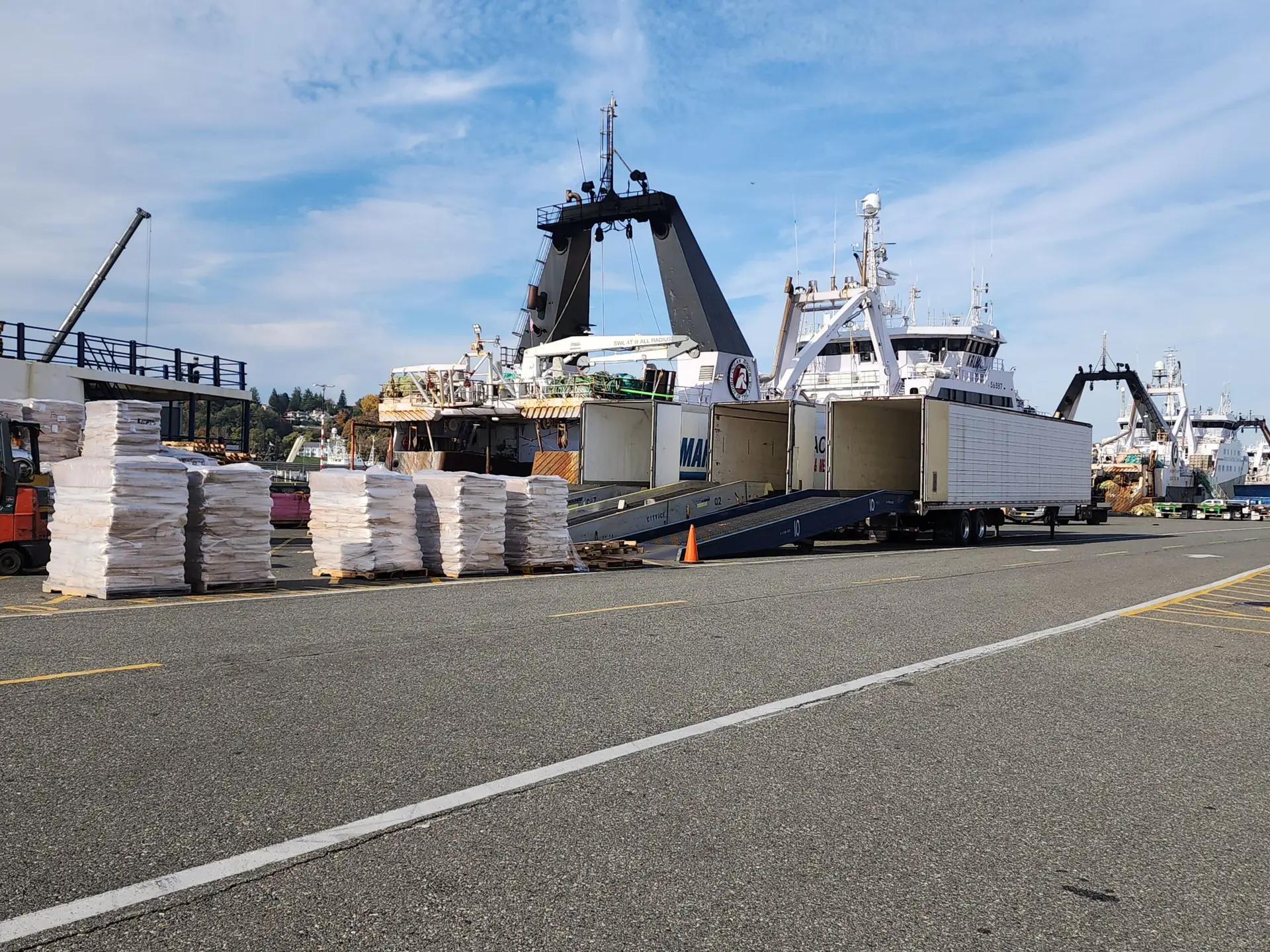
Less-than-truckload services present a practical solution for businesses to manage variations in demand effectively. These services allow businesses to move smaller product quantities without paying for a full truckload. Alternatives include a van, box truck, or other customer-requested vehicles. Businesses can efficiently manage transportation costs by allocating resources according to their needs with this flexible approach. This suggests cost savings by paying only for the space needed to accommodate larger shipments during peak demand or smaller shipments during low demand.
Combining smaller shipments that don’t need a truckload into one larger shipment is consolidation. This strategy helps LTL firms maximize trailer space, improving efficiency and fuel efficiency. Thus, transportation costs per unit drop, saving money.
Businesses can manage demand fluctuations with less-than-truckload services. This allows businesses to transport smaller quantities of products without paying for a full trailer. Vans, box trucks, and more are available to meet customer needs. This flexible approach lets companies precisely allocate resources to manage their transportation costs. By only paying for the space needed for larger shipments during peak demand or smaller shipments during low demand, they can save money.
These services enable businesses to ship smaller quantities of products without waiting for a full trailer. Businesses can schedule product delivery at different times and places to suit their customers. In addition, less-than-truckload services frequently provide a range of delivery choices, including expedited or parcel delivery, therefore increasing the versatility of scheduling for businesses.
LTL (less-than-truckload) freight transports over 50 billion pounds of cargo annually in North America, contributing to modern commerce. Changing economic conditions and market demands are transforming the 150-to-15,000-pound specialized shipping segment. LTL operations have been affected by recent market shifts, particularly in technology integration and service productivity. Rising operational costs, labor market pressures, and changing customer expectations challenge the industry. These challenges offer growth opportunities as businesses increasingly rely on effective freight solutions.
The healthcare industry transports more than one trillion dollars in cargo each year, resulting in distinct requirements for less-than-truckload services. Temperature-sensitive pharmaceuticals require strict cold chain management during transit operations. Pharmaceutical shipments require meticulous temperature regulation to avert product degradation. Carriers offer refrigerated transport solutions alongside real-time monitoring capabilities to ensure compliance with these critical standards. In addition, commitment to regulatory compliance requires the completion of accurate records and the implementation of specialized handling protocols. The expansion of healthcare freight has led LTL carriers to create specialized solutions for pharmaceutical clients, such as temperature-controlled vehicles and expedited shipping options.
The expansion of e-commerce has significantly altered the landscape of the LTL freight sector. Between 2017 and early 2019, the share of e-commerce in U.S. retail sales increased from around 11% to almost 17%. The observed growth has led to an unmatched demand for less-than-truckload (LTL) services, primarily through:
Some experts call e-commerce “the single most significant factor in reshaping LTL freight.” This phenomenon has intensified as cities grow, increasing demand for effective intra-city and regional freight delivery systems.
Retail distribution networks are increasingly using LTL services to improve competitive pricing and ensure inventory flexibility. The rise of regional distribution centers and micro-fulfillment hubs has notably boosted the demand for LTL shipments, facilitating the movement of goods over shorter distances and in smaller quantities. Retailers and e-commerce giants such as Amazon and Walmart leverage LTL to enhance the efficiency of their last-mile delivery operations. Additionally, companies aiming for cost efficiency often turn to external logistics providers, as third-party logistics firms currently handle around 30% of less-than-truckload freight.
Tariff policies are likely to be the most impactful economic element, transforming cross-border LTL operations in 2025. The introduction of 25% tariffs on goods from Canada and Mexico has significantly transformed freight movements across North America. Only 51% of Mexican and 62% of Canadian imports were taxed initially, but now nearly all are.
The recent adjustments in policy have prompted swift reactions in the market. Compared to January, spot rates from Toronto to Chicago rose 25%. Additionally, the capacity of trucks at border crossings has significantly decreased as businesses are opting to transport larger quantities of goods to the border as a precautionary measure.
The effects of tariffs reach far beyond just the immediate price changes. Logistics planning has seen major shifts, as numerous shippers are now employing “wait-and-see” strategies or maintaining inventories at borders—methods that experts warn are “not sustainable in the long term.” Small businesses claim that tariffs will make their model unviable, requiring a complete retooling. Thus, rising outsourcing has faced challenges as businesses rethink their supply chain strategies.
Manufacturing companies use LTL shipping to transport smaller quantities of raw materials and components that are essential for maintaining production continuity. This dependency intensifies as regional manufacturing hubs, especially in North America and Europe, experience resurgence.
LTL shipping can optimize supply chains and deliver materials quickly for manufacturers of metals, textiles, and electronics. Businesses use LTL carriers to move finished goods between factories and distribution centers to shorten supply chains and lead times.
The 2025 financial results of major LTL freight companies show significant differences in revenue growth, profit margins, and strategic investments.
In Q3 of 2025, earnings reports from leading LTL carriers reveal a varied financial landscape, with results spanning from minor declines to modest revenue growth. Old Dominion Freight Line separates itself as a leading entity, boasting a remarkable market capitalization of $37.51 billion along with outstanding profitability indicators—attaining a 21.19% net profit margin and a 34.12% gross margin. XPO Logistics, having a market capitalization of $12.16 billion, showcases a more controlled revenue with a net margin of 3.08% and a gross margin of 10.5%.
Saia has established itself as a notable contender, showcasing a market capitalization of $12.07 billion USD alongside robust profitability—featuring a net profit margin of 12.42% and a gross margin of 16.14%. While carriers face rising costs and lower shipment volumes, these metrics show significant performance differences.
The LTL industry is experiencing noteworthy consolidation, marked by a wave of mergers and acquisitions. Hercules Forwarding, which TFI International acquired, added 31 terminals and $100 million in annual revenue. Estes, currently the second-largest owner of former Yellow real estate after XPO, has purposefully targeted acquisitions in key northbound corridor locations leading into Canada.
Merger and acquisition activities often seek to enhance efficiency, expand geographic reach, and diversify service offerings. XPO has strengthened its market presence by making strategic acquisitions, such as Conway. By 2025, experts anticipate ongoing interest in acquisitions as carriers aim to enhance efficiency and explore opportunities for network expansion.
Operating ratios (ORs) serve as a key standard for assessing performance within the LTL sector. FedEx Freight announced an operating ratio of approximately 86%, whereas Old Dominion achieved an outstanding 72.6% OR, establishing itself as the leader in operational efficiency in the sector. On the other hand, TFI International’s U.S. LTL division reported a concerning adjusted operating ratio of 97.3% in Q4 2024, down from 91% in the previous year.
ABF Freight, an entity of ArcBest, showcases a balanced level of efficiency, reflected in its operating ratio of 8.53%. Due to slowing demand and rising operational costs, many carriers faced operational ratio issues in 2023 and 2024.
The pricing strategies within the LTL freight industry showcase complex connections between various operational elements and current market conditions. The detailed cost framework involves various factors that carriers must manage to ensure they stay profitable and competitive in the market.
Fuel surcharges protect carriers from unpredictable diesel price changes. Surcharges generally come into play when fuel prices surpass a set limit, with the percentages rising gradually. For example, when the price of diesel ranges from $3.67 to $3.80 per gallon, a surcharge of 10% is implemented. Recent market analysis has shown that average fuel surcharges to major carriers decreased by 3.4% in Q4 2024 when compared to the previous quarter.
Disparities in supply and demand across geographic marketplaces are the cause of regional pricing variations. To maximize network efficiency, carriers adjust prices, sometimes providing reductions during off-peak hours. As opposed to focusing only on yearly rate changes, dynamic pricing solutions have begun allowing LTL carriers to handle lane imbalances in real time. Carriers may use this tactic to facilitate shipments in underutilized ways while optimizing profitability in areas with high demand.
The National Motor Freight Classification (NMFC) system is currently experiencing its most substantial transformation to date, shifting to an essentially density-based methodology. Beginning in July 2025, this transformation will yield variable pricing effects contingent upon shipment density. Shipments with densities under 4 pounds per cubic foot are expected to experience cost escalations, whereas those within the 4-6 pound range and those exceeding 8 pounds per cubic foot will likely incur reduced expenses. The purpose of this reclassification is to more accurately represent the utilization of trailer space. This adjustment effectively reduces shipping costs for denser items, which are heavy yet compact, while increasing costs for lightweight, bulky items.
A major transformation is underway in LTL freight. Industry evolution is driven by several key trends. Greater demand for less-than-truckload services is driven by e-commerce, manufacturing, and healthcare. Transitioning to density-based pricing changes this sector’s economy. This shift, regional market variations, and fuel price fluctuations create a complex pricing landscape that carriers must navigate. The LTL sector appears poised for growth due to changing supply chain needs and technological advances. Successful carriers will balance operational efficiency, strategic investment, and market responsiveness.
FIS employs LTL services to address a company’s transportation requirements through consolidation, thereby enhancing operational efficiency. FIS skillfully manages variations in demand through the provision of diverse shipment alternatives and the facilitation of flexible delivery scheduling. These variables promote growth and cost-effectiveness, which enhances the transportation processes associated with a business’s goods.




